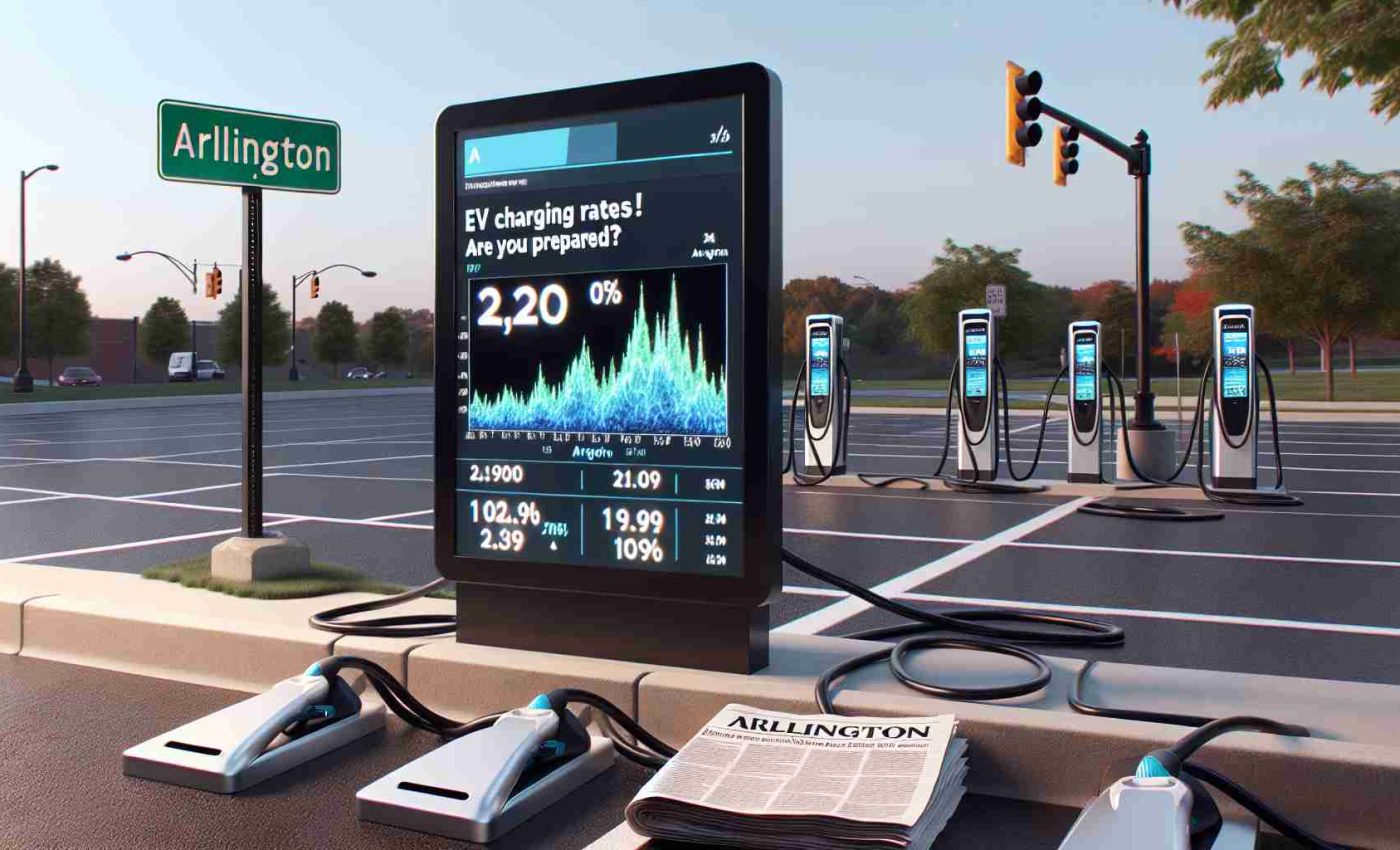Arlington County Increases Electric Vehicle Charging Fees
In a significant move, the Arlington County Board has approved higher fees for its electric vehicle charging stations, striving not for profit but to cover operational costs. The board’s new pricing strategy raises the base fee to 17.46 cents per kilowatt-hour from the previous 14.52 cents. For drivers, this change means that charging costs for 300 miles of travel will increase from approximately $15.07 to $18.12.
Additionally, a new dwell fee will be imposed, requiring users to relocate their vehicles within 15 minutes of completing a charge. This fee is set at $3 per hour, capped at $25. The board emphasized that this policy aims to optimize access to charging facilities for everyone.
Those using metered parking while charging will also incur meter fees, which range from $1 to $3.25 per hour. Although the new rates place Arlington below the costs set by neighboring areas, the first hour remains free in Falls Church, and Alexandria currently lacks public charging stations altogether.
As Arlington expands its EV charging infrastructure, the number of operational stations has jumped from 15 to 31. This growth is part of the county’s commitment to sustainability and aims for carbon neutrality by 2050. To assist users in locating these chargers, an online map will soon be available, further simplifying the electric vehicle experience in Arlington.
Arlington County’s EV Charging Fee Overhaul: What You Need to Know
Arlington County Increases Electric Vehicle Charging Fees
Arlington County has made headlines with its recent decision to increase electric vehicle (EV) charging fees at public stations. This step is part of a broader initiative to manage operational costs while promoting sustainable transportation options. Here’s a deeper look at the implications and features of this new pricing strategy.
New Charging Fees and Impact
The Arlington County Board has raised the base fee for charging from 14.52 cents to 17.46 cents per kilowatt-hour. For EV drivers, this means that charging for approximately 300 miles of travel will now cost around $18.12, up from the prior estimate of $15.07.
In addition to the base fee adjustment, Arlington will implement a new dwell fee. Users must move their vehicles within 15 minutes of completing their charge or face a $3 per hour fee, capped at a total of $25. This policy aims to improve access and turnover of charging spaces for all drivers, ensuring that more EV users can benefit from the available stations.
Metered Parking and Additional Costs
For those who utilize metered parking while charging, additional fees of $1 to $3.25 will apply. Notably, while Arlington’s rates remain competitive compared to surrounding areas, it’s crucial to consider that other jurisdictions, such as Falls Church, offer the first hour of charging for free, and Alexandria currently lacks public charging stations altogether.
Expansion of Charging Infrastructure
One of the more positive outcomes of this initiative is the expansion of Arlington’s EV charging network, which has grown from 15 to 31 operational charging stations. This increase directly supports Arlington’s commitment to sustainability, with a target of achieving carbon neutrality by 2050.
Online Accessibility and Future Features
To further enhance the user experience, Arlington County plans to launch an online map that will help drivers locate the nearest charging stations. This feature will streamline the process for EV owners, making it easier to find charging opportunities in real-time.
Trends and Insights in EV Charging
1. Market Growth: The electric vehicle market is witnessing rapid growth, with more consumers transitioning to EVs. This trend necessitates enhanced infrastructure, making Arlington’s initiative timely and relevant.
2. Sustainability Goals: Many municipalities, including Arlington, are setting ambitious goals for carbon neutrality. Improved access to EV charging stations is critical in achieving these goals and encouraging more residents to adopt electric vehicles.
3. Fee Structures: As cities modernize their charging infrastructure, varied fee structures are emerging. Arlington’s new fees reflect an evolving model aimed at balancing demand and sustainability.
4. Future Innovations: Expect advancements in charging technology and payment systems, such as apps that allow for seamless payments and integration with navigation tools, enhancing the overall EV driving experience.
Conclusion
Arlington County’s decision to increase EV charging fees underscores a shift towards sustainable transportation solutions while maintaining accessibility for its residents. As the county expands its network of charging stations, users can look forward to effective methods for locating charging options and a commitment to supporting electric vehicle adoption.
For further insights into Arlington’s initiatives and to keep track of developments, visit arlingtonva.us.






